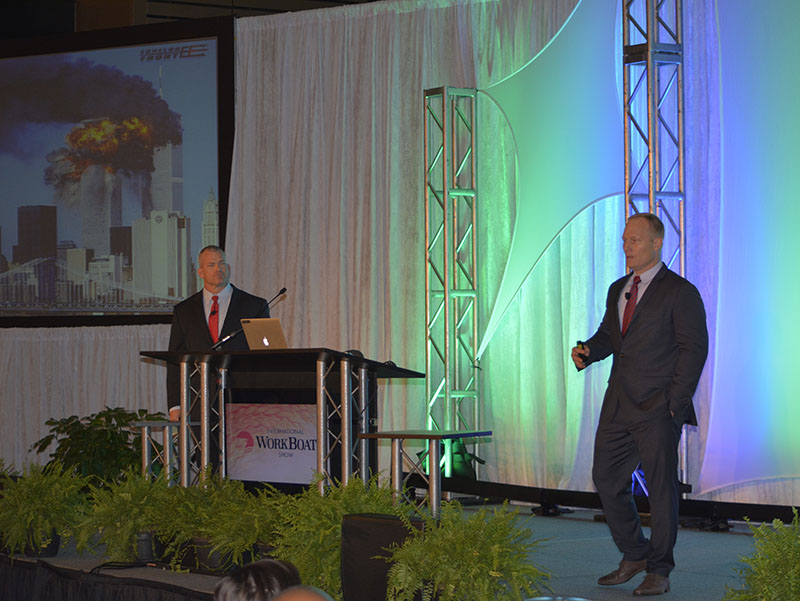Training his Navy SEAL unit to deploy to Iraq, Jocko Willink got the feeling his men were just not getting everything they would need to face a rising insurgency.
ŌĆ£Jocko taught us this concept of ŌĆśextreme ownership,ŌĆÖŌĆØ recalled Leif Babin, WillinkŌĆÖs comrade in Anbar province in 2006. ŌĆ£We couldnŌĆÖt blame it on the trainers. We had to take ownership of it.
ŌĆ£Thank God we did thatŌĆ”we get new orders and find out weŌĆÖre going to a little place called Ramadi.ŌĆØ
Now partners in their leadership consulting firm Echelon Front LLC, Willink and Babin shared what the learned with a full house audience Wednesday at the 2016 International WorkBoat Show.
With their life or death decisions at the squad and platoon level, the Ramadi SEALs helped the Army and Marines secure the city, ultimately helping make it one of the safer places for Iraqi citizens, Willink recalled. That experience and their later work as top SEAL trainers led Willink and Babin to adapt their combat rules for use by business.
ŌĆ£Cover, move. Simple. Prioritize and Execute. Decentralized Command.ŌĆØ Inside those four concepts are their rules for leading and working together.
ŌĆ£If the team fails, everyone fails,ŌĆØ Babin said. ŌĆ£ItŌĆÖs not about you, itŌĆÖs about the missionŌĆ”IŌĆÖve got to help you get better.ŌĆØ
In charge of two SEAL platoons, Willink was frustrated by excessively complicated plans, ineffectively communicated by young officers.
ŌĆ£If people donŌĆÖt understand, they canŌĆÖt execute,ŌĆØ he said.
At the same time, ŌĆ£itŌĆÖs your responsibility to raise your had and find out why,ŌĆØ Willink said. ThatŌĆÖs what makes decentralized command work. And when you get it right, you will win.ŌĆØ




